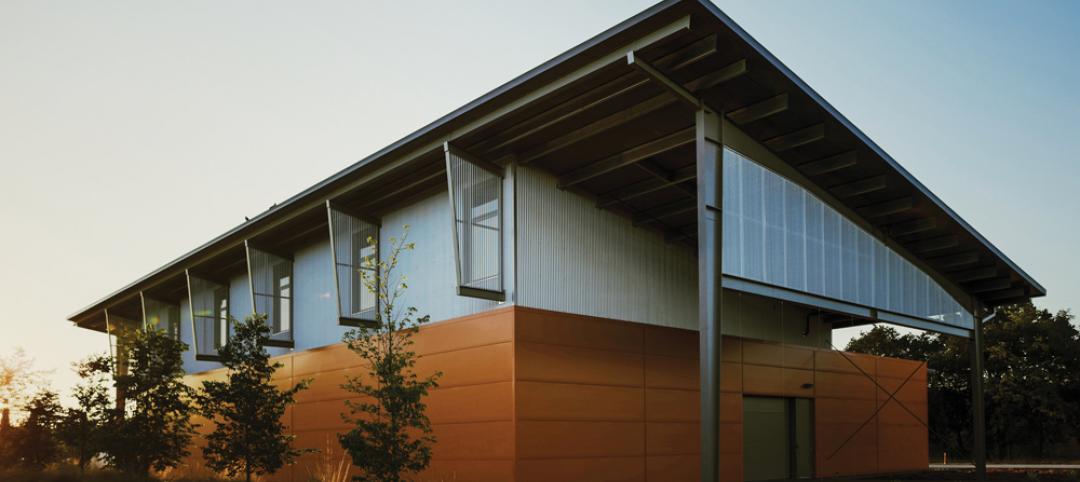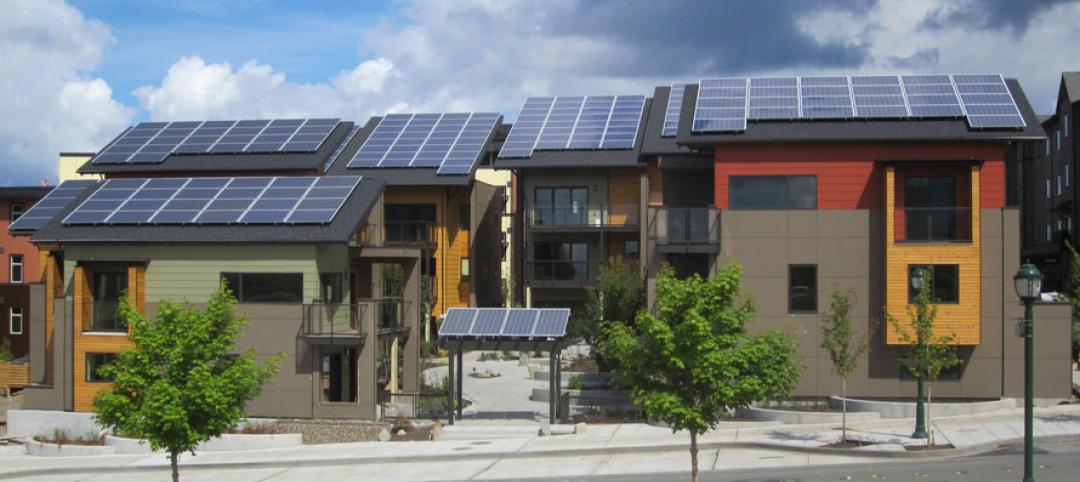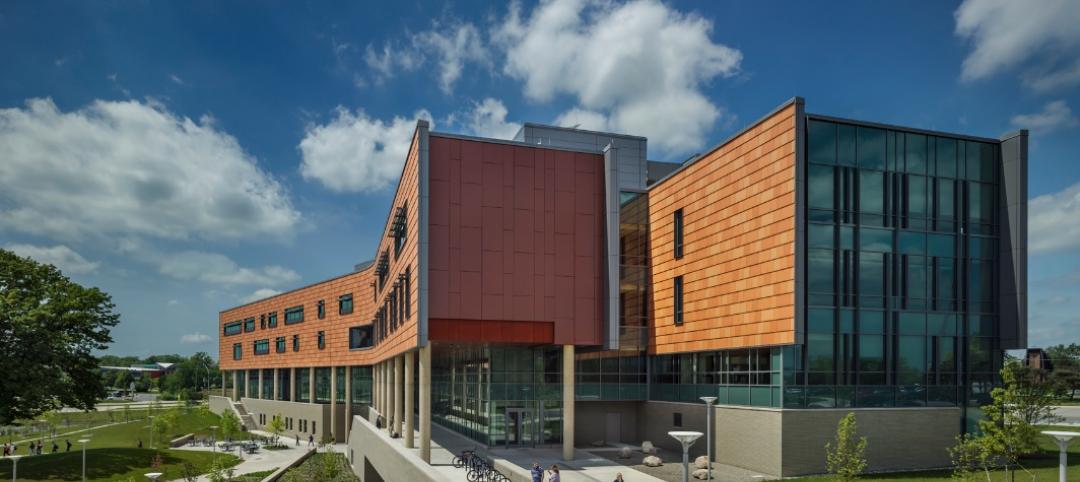The U.S. Department of Energy has released a common definition for a zero energy building: “An energy-efficient building where, on a source energy basis, the actual annual delivered energy is less than or equal to the on-site renewable exported energy.”
The recently published A Common Definition for Zero Energy Buildings provides clarity across the industry, and provides important guidelines for measurement and implementation on building projects.
In collaboration with the National Institute of Building Sciences (NIBS), DOE initiated a process last year to work with a large, diverse set of building industry stakeholders to develop its common definition for what it means to be a zero energy building.
“By clarifying what it means to be a zero energy building, this definition will help more building owners determine if developing a zero energy building is right for them,” DOE says. “By creating this common definition for zero energy buildings, building owners and project teams can now better focus their effort on implementing strategies to improve the performance of their buildings.”
Related Stories
| Nov 8, 2013
Can Big Data help building owners slash op-ex budgets?
Real estate services giant Jones Lang LaSalle set out to answer these questions when it partnered with Pacific Controls to develop IntelliCommand, a 24/7 real-time remote monitoring and control service for its commercial real estate owner clients.
| Nov 8, 2013
S+T buildings embrace 'no excuses' approach to green labs
Some science-design experts once believed high levels of sustainability would be possible only for low-intensity labs in temperate zones. But recent projects prove otherwise.
| Nov 8, 2013
Net-zero bellwether demonstrates extreme green, multifamily style
The 10-unit zHome in Issaquah Highlands, Wash., is the nation’s first net-zero multifamily project, as certified this year by the International Living Future Institute.
| Nov 8, 2013
Exclusive survey: Architects balance ideals, skepticism regarding green strategies
Architects are seeking affirmation that the complex array of programs, systems, and tools at their disposal actually do result in more sustainable buildings, according to a recent survey of architects by Building Design+Construction.
| Nov 6, 2013
Energy-efficiency measures paying off for commercial building owners, says BOMA study
The commercial real estate industry’s ongoing focus on energy efficiency has resulted in a downward trend in total operating expenses (3.9 percent drop, on average), according to BOMA's Experience Exchange Report.
| Nov 5, 2013
Oakland University’s Human Health Building first LEED Platinum university building in Michigan [slideshow]
Built on the former site of a parking lot and an untended natural wetland, the 160,260-sf, five-story, terra cotta-clad building features some of the industry’s most innovative, energy-efficient building systems and advanced sustainable design features.
| Oct 28, 2013
Packard Foundation’s headquarters receives ILFI Net Zero certification
The Packard Foundation’s 49,000-sf headquarters recently achieved Net Zero Energy Certification through the International Living Future Institute (ILFI), making it the largest such building in the world.
| Oct 18, 2013
Meet the winners of BD+C's $5,000 Vision U40 Competition
Fifteen teams competed last week in the first annual Vision U40 Competition at BD+C's Under 40 Leadership Summit in San Francisco. Here are the five winning teams, including the $3,000 grand prize honorees.
| Oct 18, 2013
Cities may be more capable of driving sustainability than nations, experts say
With countries not tackling climate change aggressively, cities are in the best position to drive increased sustainability.
| Oct 10, 2013
Carnegie Mellon study looks at impact of dashboards on energy consumption
A recent study by Carnegie Mellon took a look at the impact of providing feedback in an energy dashboard form to workers and studying how it impacted overall energy consumption.

















